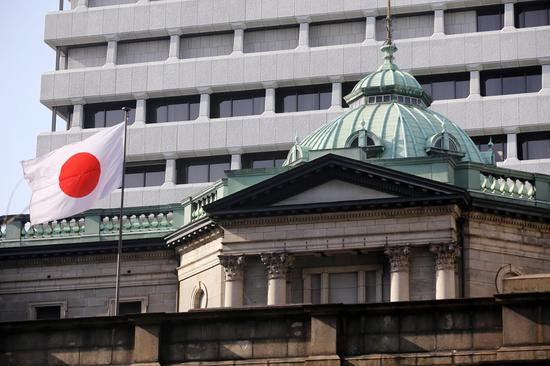
Against the backdrop of the constantly evolving global economic landscape, the monetary policy direction of the Bank of Japan has always been closely monitored. Recently, the market has speculated that the Bank of Japan may raise interest rates before the end of the year, which has sparked widespread discussion and attention. So, what is the truth about the Bank of Japan's interest rate hike? This article will conduct in-depth analysis from multiple perspectives to reveal the mysteries behind it.
Firstly, we need to understand the background of the Bank of Japan's interest rate hike. In recent years, with the gradual recovery of the global economy and the rise of inflationary pressures, central banks of various countries have adjusted their monetary policies to cope with changes in the economic situation. In this context, the Bank of Japan is also facing pressure to adjust its monetary policy. Although the Japanese economy has improved in recent years, there are still many challenges, such as weak consumption and high debt. Therefore, the Bank of Japan needs to weigh various factors when raising interest rates to ensure that policy adjustments can respond to inflationary pressures without having a negative impact on economic growth.
Secondly, let's explore the possible reasons for the Bank of Japan's interest rate hike. On the one hand, as global inflationary pressures rise, the Bank of Japan may need to raise interest rates to control inflation levels and maintain price stability. On the other hand, raising interest rates also helps to increase the Japanese yen exchange rate, thereby improving Japan's trade conditions and international competitiveness. In addition, raising interest rates will also help reduce the debt burden of the Japanese government and alleviate fiscal pressure. These reasons collectively constitute the potential driving force for the Bank of Japan to raise interest rates.
However, raising interest rates is not an easy task, and the Bank of Japan still needs to consider many factors in its decision-making process. Firstly, raising interest rates may have a negative impact on economic growth. Although the Japanese economy has improved, there is still fragility, and interest rate hikes may lead to investment and consumption being suppressed, thereby affecting economic growth. Secondly, raising interest rates may trigger fluctuations in the financial market. The Japanese financial market is very sensitive to monetary policy adjustments, and raising interest rates may lead to significant fluctuations in markets such as the stock and bond markets, bringing uncertainty to investors. Finally, interest rate hikes also need to consider the impact of international factors. In the context of global economic integration, the monetary policy adjustment of the Bank of Japan may have spillover effects on other countries and requires careful consideration.
So, what is the likelihood of the Bank of Japan raising interest rates before the end of the year? From the current situation, there is a possibility of interest rate hikes, but they are not guaranteed. On the one hand, global inflationary pressures are indeed on the rise, and the Bank of Japan needs to pay attention to this trend and take corresponding measures. On the other hand, the Japanese economy still faces many challenges, and raising interest rates may have a negative impact on economic growth. Therefore, the Bank of Japan needs to comprehensively consider various factors and weigh the pros and cons in its decision-making process.
In addition, we also need to pay attention to the impact of the Bank of Japan's interest rate hike on the global economy. As the world's third-largest economy, Japan's monetary policy adjustment will undoubtedly have a certain impact on the global economy. If the Bank of Japan raises interest rates and causes the yen to appreciate, it may put pressure on exports from other countries. At the same time, raising interest rates may also cause fluctuations and uncertainty in global financial markets. Therefore, central banks and financial markets around the world need to closely monitor the monetary policy trends of the Bank of Japan and be prepared to respond.
In short, whether the Bank of Japan will raise interest rates before the end of the year remains a mystery. We need to closely monitor the global economic situation and the policy trends of the Bank of Japan to understand the answer to this question. At the same time, we should also recognize that monetary policy adjustment is a complex and arduous task that requires weighing various factors and making wise decisions. In this process, we need to maintain a rational and objective attitude, avoiding excessive interpretation and speculation.
Finally, we look forward to the Bank of Japan making appropriate decisions based on the economic situation and policy objectives, contributing to the stability of the Japanese economy and the prosperity of the global economy. At the same time, we also hope that central banks of various countries can strengthen communication and coordination to jointly address the challenges and risks facing the global economy.

On the morning of December 29th local time, the precious metals market plummeted sharply after briefly breaking through the $80 per ounce mark.
On the morning of December 29th local time, the precious me…
According to the US media Barchart, recently, the fluctuati…
On December 29th, Mar-a-Lago in Florida, USA, witnessed a h…
SoftBank Group announced on Monday that it has agreed to ac…
Recently, the US State Department issued a visa ban, adding…
On January 20, 2025, just 13 days after taking office, Trum…